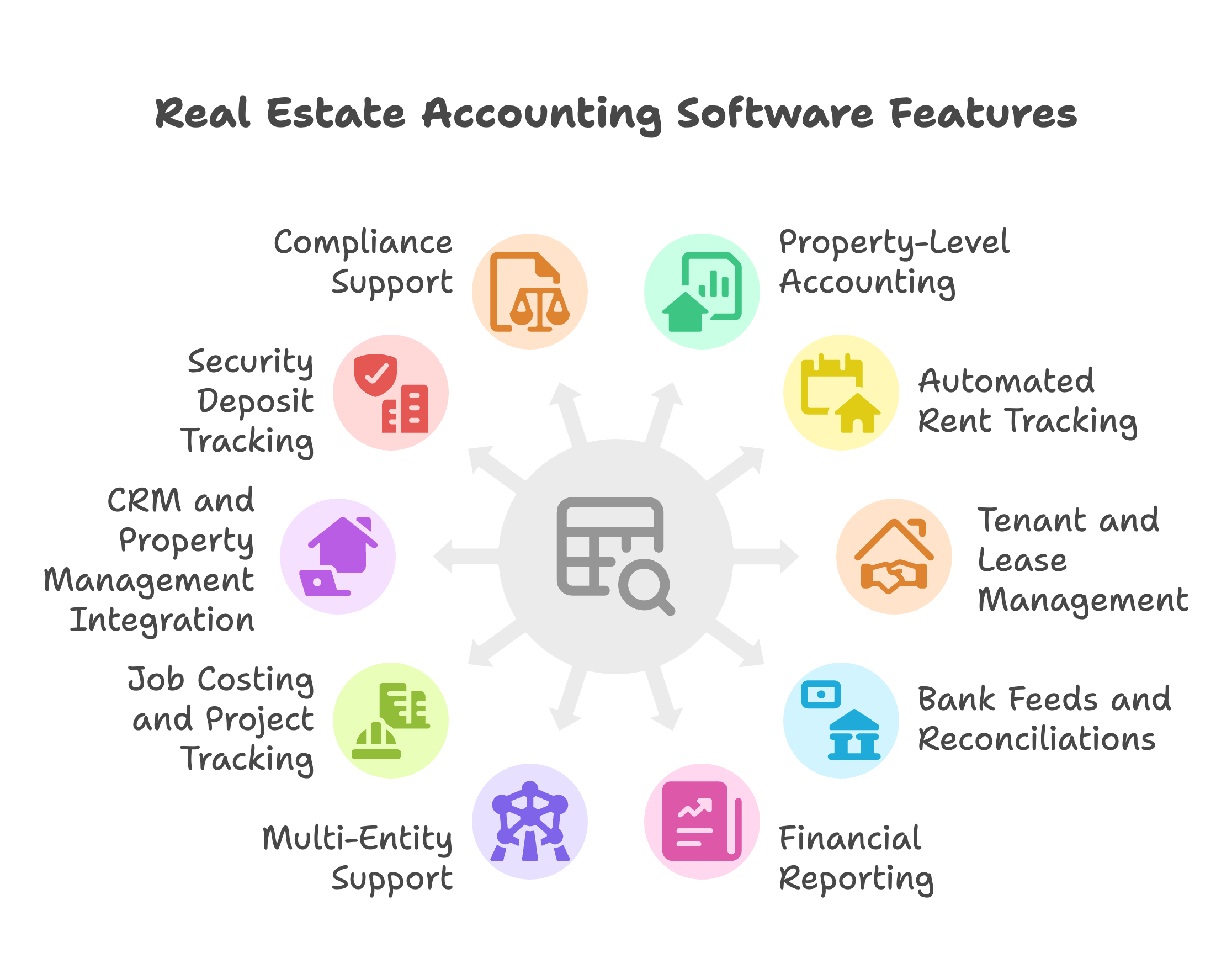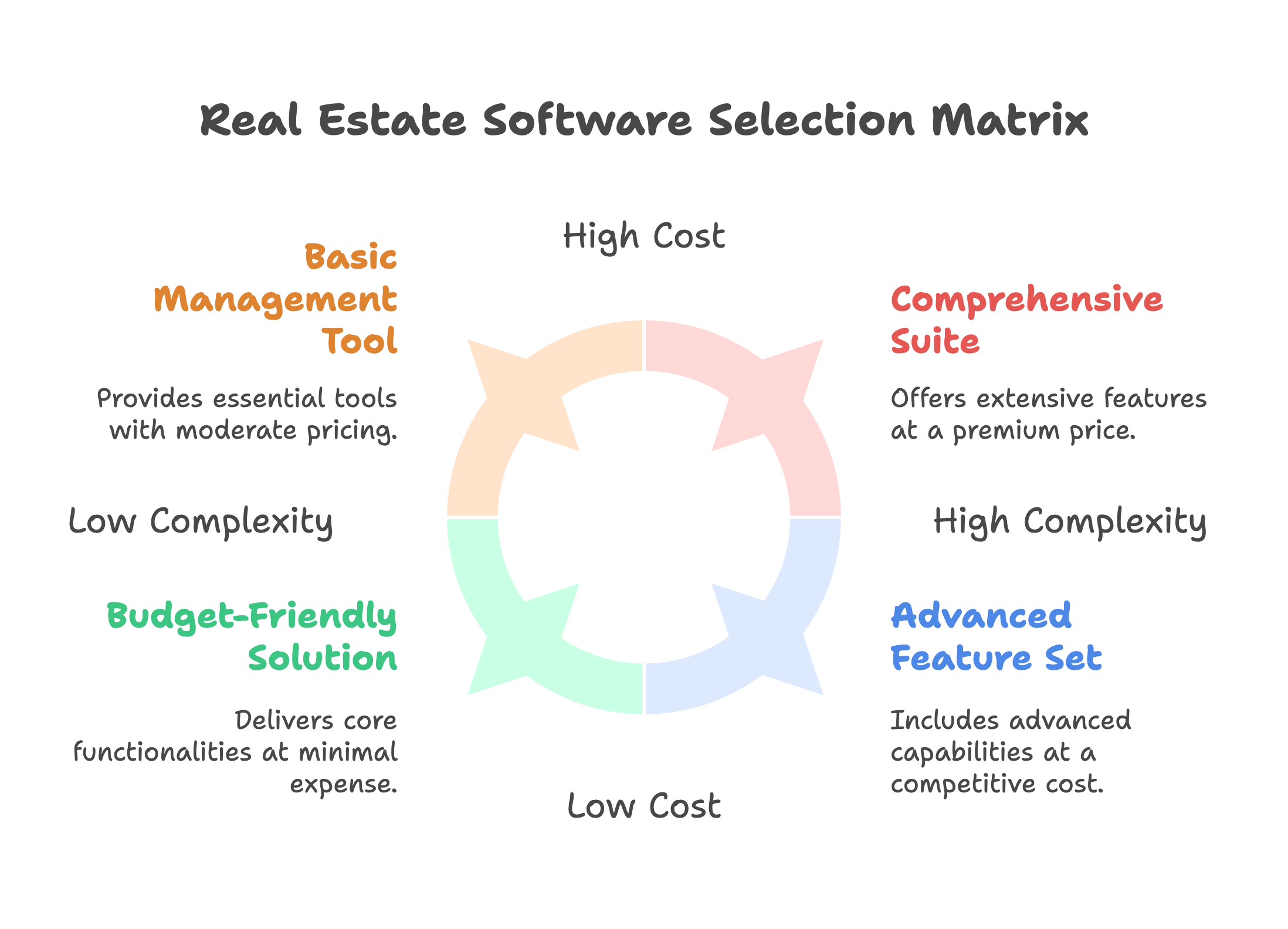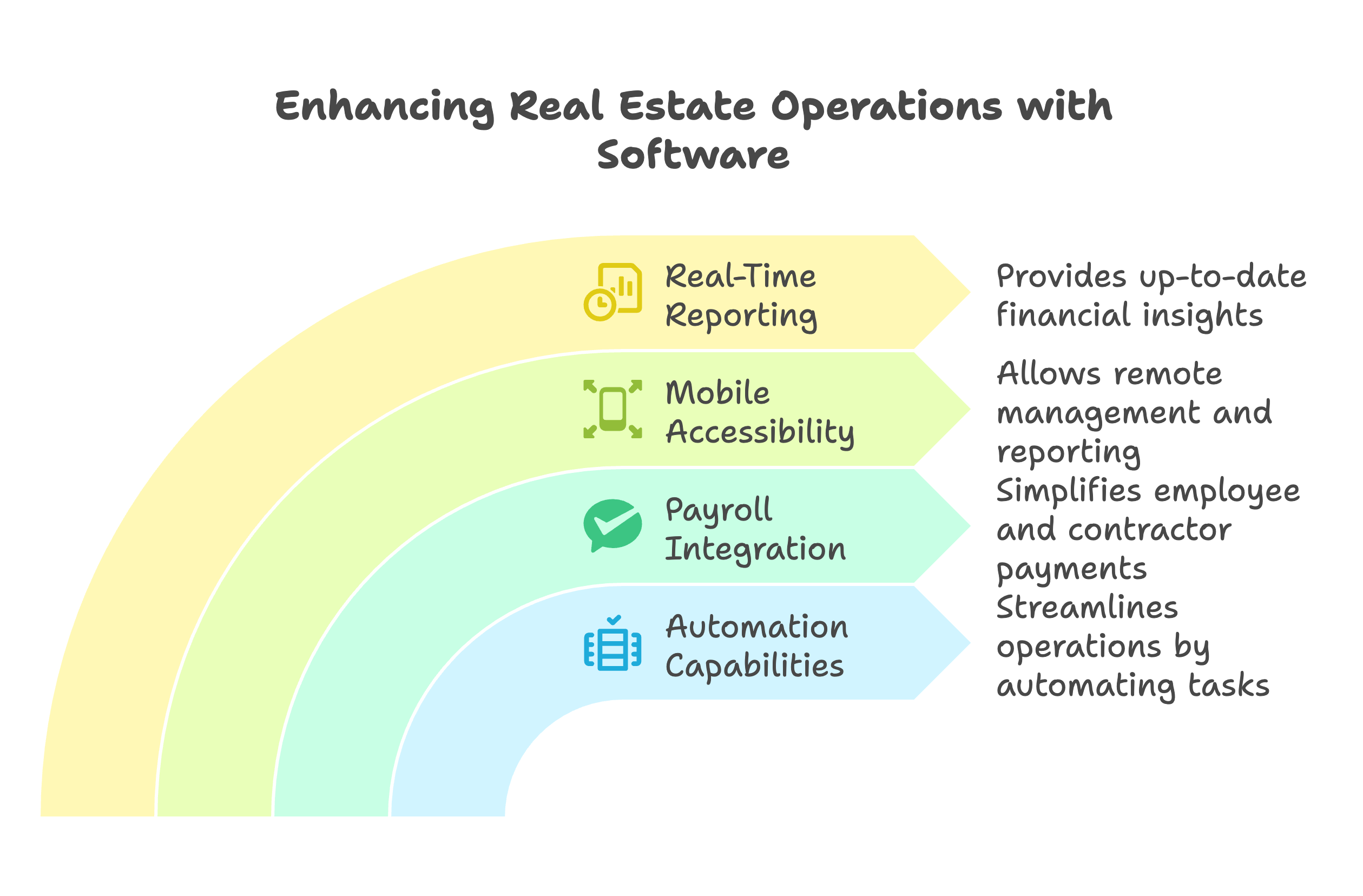Accounting in real estate is anything but simple. Whether you manage rental properties, flip homes, operate a brokerage, or invest in commercial developments, your business generates a steady stream of complex transactions. These include rent collection, escrow handling, asset depreciation, investor distributions, loan interest, and tax-deductible expenses.
A generic accounting solution may help track basic bookkeeping, but it will not give you what you truly need - a clear picture of cash flow by property, easy reporting for investors, or streamlined compliance with real estate tax rules.
That is why choosing the right accounting software for real estate matters. The right platform can save time each month, reduce human error, provide meaningful financial visibility, and even help you make more informed investment decisions.
At Madras Accountancy, we support real estate clients and CPA firms with offshore accounting teams who work across leading software platforms. In this guide, we share what real estate accounting software should offer, how to choose one based on your business model, and how outsourcing can streamline your workflows once the system is in place.
Real estate businesses deal with a mix of financial activities that make their accounting more complex than other industries. These activities include:
This complexity requires an accounting system that is flexible, customizable, and designed with real estate in mind.
Using general-purpose accounting software like QuickBooks without customizations can work for very small operations, but as your portfolio grows, limitations become obvious. The result is more time spent on manual reconciliation and less time available for strategic decision-making.
Real estate business accounting software is useful for a variety of players in the industry. Here is how different business models use it:
These companies handle rent collection, maintenance, and financial reporting for multiple properties on behalf of landlords. They need tools to manage tenants, generate owner statements, and separate funds by property. Property management teams also require systems that can automate routine tasks and handle payroll for maintenance staff.
Whether it is a family office or a syndicate, real estate investors need accurate financial reports for each asset. Accounting software helps them track acquisition costs, net operating income, loan payments, and investor distributions.
Brokerages have unique accounting needs such as commission tracking, agent payroll, and marketing expenses. Real estate-specific accounting tools make it easier to report agent performance and split revenues among real estate agents.
These businesses need job costing features to track renovation budgets, contractor payments, and project profitability. Software should also support capital expenditure tracking and milestone-based cost recognition.
If you operate vacation rentals or manage Airbnbs, you need to sync booking platforms, track cleaning fees, calculate occupancy taxes, and reconcile income and expenses from different channels.
Each of these models has slightly different needs. The accounting software you choose should match the way you operate.
While features vary by platform, here are the non-negotiables you should expect when evaluating a real estate-specific accounting solution.
You must be able to track income, expenses, and profitability by individual property or unit. This includes allocating shared costs proportionally and separating restricted funds like security deposits.
The system should allow you to schedule recurring rent invoice generation, apply late fees, and automate reminders. It should also track whether rent has been paid, partially paid, or remains overdue.
Good software connects your accounting with your leasing operations. You should be able to track lease start and end dates, manage renewals, and store signed agreements alongside financial records.
Integration with your bank accounts is essential for reconciling rent payments, deposits, loan draws, and vendor payouts. Reconciliations should be accurate and auditable.
You will need both property-level and consolidated reports. Key reports include:
Many real estate businesses operate across multiple legal entities. Your accounting software should allow you to manage them within one dashboard and generate separate reports.
For developers and rehab investors, job costing is critical. Your software should allow you to assign costs to a project, compare actual to budget, and monitor spending in real-time.
If you already use tools like AppFolio, Buildium, or Salesforce, make sure your accounting software can connect to them. This reduces data entry and improves accuracy.
Security deposits must be tracked separately from operating funds and handled according to legal guidelines. Your software should automate this process.
Features like 1099 reporting, audit trails, user access logs, and tax filing integrations help you stay compliant and ready for reviews.

Let's explore the most popular tools used by real estate professionals and CPA firms.
QuickBooks is widely used across industries. With custom templates and third-party integrations, it can be adapted for real estate.
Pros:
Cons:
Best for: Small rental portfolios or brokerages already using QuickBooks
AppFolio is a full-featured property management and accounting platform for residential and commercial real estate.
Pros:
Cons:
Best for: Mid-size and large property management firms
Buildium is another strong contender in the property management software space.
Pros:
Cons:
Best for: Small to medium-sized property management firms
Stessa is designed for real estate investors. It automates income and expense tracking and produces performance dashboards.
Pros:
Cons:
Best for: Individual investors and landlords
RealPage offers enterprise-level software for large property portfolios. It includes accounting, leasing, compliance, and business intelligence.
Pros:
Cons:
Best for: Large property management firms and multifamily housing portfolios
Choosing the right platform depends on your business model, team size, and growth plans. Here are key factors to consider:
Some platforms charge per unit. Others offer unlimited properties but limit features by plan. Know how many assets you manage today and how many you expect in the next two years.
If you manage properties for others, you need tenant portals, lease tools, and maintenance tracking. If you own and operate your own portfolio, you need strong cost tracking and ROI analysis.
Do you need to give access to partners, property managers, or investors? Make sure the platform supports multiple permission levels and user logins.
Choose software that can handle 1099s, investor K-1 support, and audit trails. This will save time during tax season and help your accountant prepare accurate filings.
If you already use a CRM or payment platform, choose accounting software that connects easily. Avoid double entry or manual reconciliation.
Some platforms offer flat fees. Others charge per property, per user, or per feature. Get a quote and calculate your total cost over time.

Today's real estate accounting software platforms offer advanced features that can significantly improve your operations:
Modern systems can automate rent collection, late fee applications, and recurring invoice generation. This reduces manual work and helps streamline day-to-day operations.
Many platforms now integrate with payroll systems, making it easier to manage employee compensation, contractor payments, and commission structures for real estate agents.
A good mobile app allows you to approve expenses, check property performance, and generate reports while away from the office.
Access to real-time financial data helps you make faster decisions and respond quickly to changing market conditions.

CPA firms that serve real estate clients often juggle multiple systems, messy spreadsheets, and last-minute document uploads. Supporting clients who use the right accounting platform makes your job easier.
Here is how firms benefit:
Some firms even recommend or resell specific platforms to clients as part of their onboarding process.
Many CPA firms and real estate businesses outsource part or all of their accounting operations. With the right offshore partner, you can manage recurring work, reduce staff costs, and deliver consistent results.
At Madras Accountancy, our offshore accounting teams are trained in real estate workflows. We help with:
We work inside your chosen platform, whether it is Xero, QuickBooks, AppFolio, or another system. You stay in control. We handle the execution and help automate routine bookkeeping processes to streamline your operations.
When selecting accounting software, consider the implementation process:
Some platforms require extensive setup to configure properties, tenants, and chart of accounts. Others offer templates that can streamline the initial configuration.
Ensure your team can learn the new system efficiently. Look for platforms with good documentation, training resources, and support.
If you're switching from another system, verify that your new platform can import historical data accurately.
Choose a vendor that offers reliable customer support and regular software updates.
Real estate businesses need more than generic accounting software. They need tools built for their industry, with features that reflect the complexity of property management, leasing, and investment tracking.
Choosing the right accounting software can simplify your operations, improve reporting accuracy, and support smarter decisions. Whether you run a brokerage, manage rentals, or operate a growing portfolio, the right system saves time and gives you better financial control.
The key is finding a solution that can automate routine tasks, integrate with your existing tools, and scale with your business growth.
Madras Accountancy supports real estate businesses and CPA firms by providing experienced offshore teams trained in real estate accounting. If you are looking to improve your accounting workflows, we are ready to help.

A practical comparison of hiring a freelancer vs using a dedicated offshore accounting team, focusing on continuity, quality control, security, and scaling.

How CPA firms outsource payroll and 1099 work to reduce penalties and admin load, with a clean workflow for approvals, filings, and year-end reporting.

Practical do's and don'ts for CPA firms outsourcing accounting work, based on common failure points and what successful rollouts do differently.